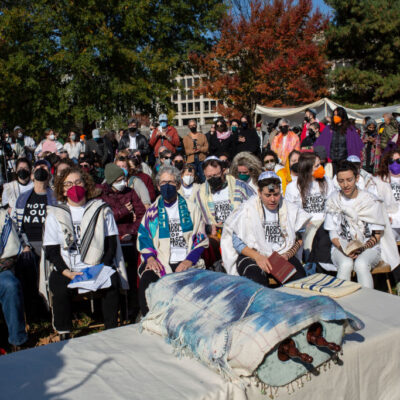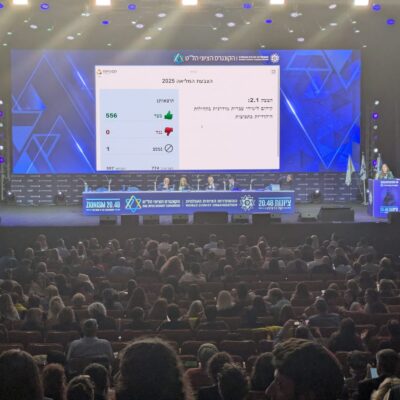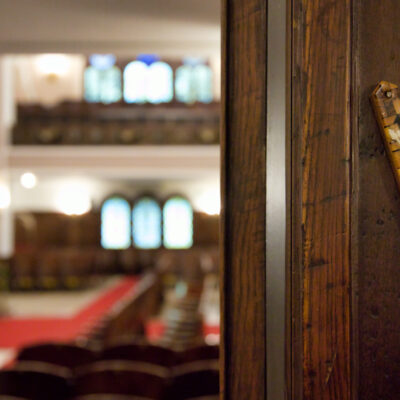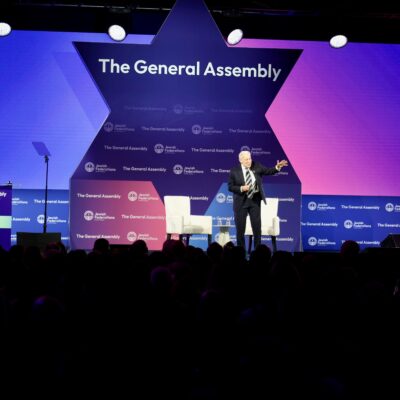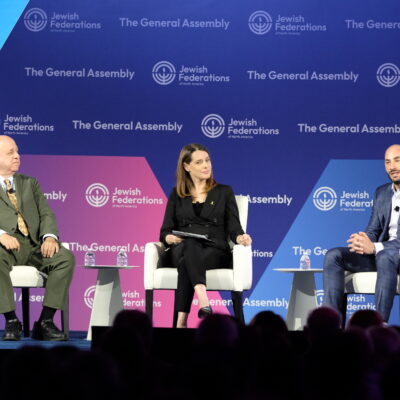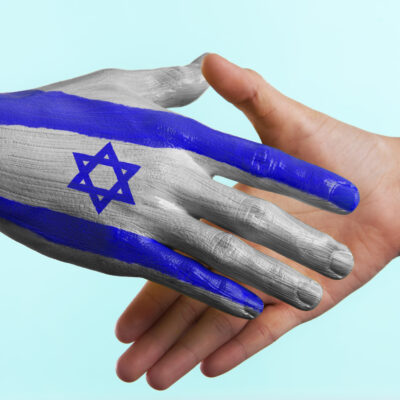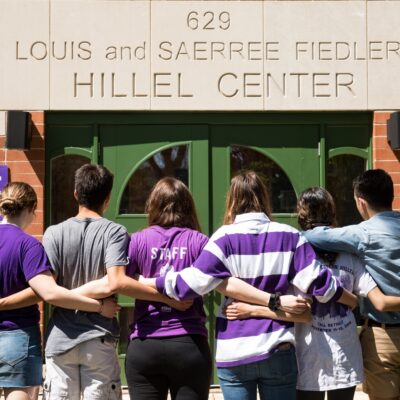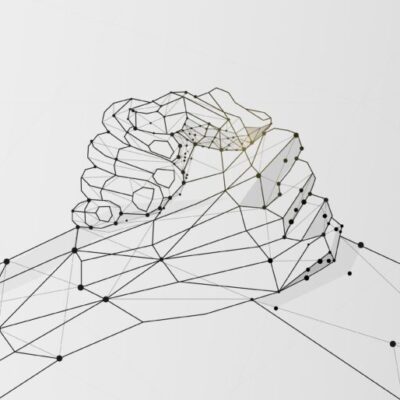On the scene
At LA gala, ADL chief rips ‘equivocating’ journalists, says anti-Zionism as dangerous as ‘rabid white supremacy’
Organization honors longtime members who stress the need to combat antisemitism for future generations

Jonathan Greenblatt, CEO of ADL, speaks at a fundraising gala for the organization on Nov. 1, 2023. Photo by Jordan Strauss/Shutterstock
LOS ANGELES – The ballroom at the Beverly Hilton was dimly lit and crowded on Wednesday night at the Anti-Defamation League Los Angeles’ annual gala, but not so much that attendees couldn’t see their neighbors wiping away tears when ADL CEO Jonathan Greenblatt spoke of his heartbreak watching footage of the grisly attacks.
In a fiery 30-minute keynote address, he told the audience of some 700 people that he was “haunted by these videos,” “broken by the pictures” and “shattered by these stories, because what we witnessed, what we are working through, is beyond words.” Greenblatt offered staunch criticism of American universities for failing to prevent or denounce antisemitism, of organizations that were silent about the Oct. 7 attacks and, perhaps most of all, of journalists.
“When Hamas issues a press release, a veritable blood libel, accusing Israel of targeting a hospital and killing hundreds, some of our most well-respected media outlets breathlessly report it out without any regard for the truth, and then they barely issue a correction, let alone apologize for the gravity of the error even though the allegations are totally destroyed,” Greenblatt said. “These journalists — and the sanctimonious activists who they seem to cater to when Jews are maimed and murdered — they equivocate, they hesitate, they suddenly struggle to find their spines. ‘It isn’t evil,’ they tell us. ‘It’s understandable.’ ‘It isn’t wicked, it’s justified.’ ‘It isn’t rape. It’s resistance.’”
Greenblatt said recent events “clarified and confirmed that fanatical anti-Zionism from the hard left is as dangerous to the Jewish community as rabid white supremacy from the extreme right. These are both radical movements. They don’t advocate for a two-state solution, or even a one-state solution. They want a final solution.”
At the same time, Greenblatt called for “counsel culture” and “consequence culture” instead of “cancel culture,” allowing for a process of education and enabling people to understand the outcomes of their actions.
He closed his speech with a call for action, organization and unity around a common cause. “Because we are stronger when we are together and when we are together, we can win and we will win: that is the goal, to reverse the trends of division and hate,” he said. “Let’s remember the lessons that we as a people have learned throughout our history: never to be silent in the face of evil, never to stand down in the face of hate and never, never to be quiet in the presence of antisemitism. Never again is now. Am yisrael chai.”
Alongside Greenblatt’s forceful address and a general air of solemnity reflecting the post-Oct. 7 environment, the event included the usual banquet fodder: fancy clothes, a cocktail hour in an overcrowded chamber before the ballroom opened for dinner, honorees and speakers, fundraising, and performances by singer Maki Mae — president & CEO of the Asian Hall of Fame, CEO of the Robert Chinn Foundation and a member of the ADL Los Angeles regional board.
ADL Los Angeles regional director Jeffrey Abrams appealed to the assembled to use the QR codes on their table centerpieces to make donations that, he announced, would be matched up to $100,000 by Darin Harvey. Attendees donated more than $150,000, which bumped the total to $250,000.
The organization also announced a $5 million gift from Susan and Eric Smidt and the Smidt Foundation.
Approximately 50 students from local Hillels attended the event, invited by the ADL after the recent wave of anti-Jewish sentiment.
USC student Brandon Tavakoli, a member of the university’s student government, told eJP that being present was important because “we’re not the generation of tomorrow’s leaders. We’re the generation of today’s leaders. To include student leaders in this gala is a down payment on ensuring that students are not only in tomorrow’s conversations, but are leading today’s conversation on Israel.”
Fellow USC student Maya Grinstein said she knows many people who are either on active duty in the IDF, are among the hostages or who were killed.
“Because I feel so far away, but I also know that I am so close in my heart and in my spirit to Israel and to Zionism and to the Jewish community, that I need to do my part and show up for my people,” Grinstein, a dual Israeli-American citizen, said. “And the best way that I can do that is be there for other students at USC, show up to events like this ADL gala, to promote ‘anti-anti-semitism training,’ understanding what the word Zionism means and how to be there for the Jewish community in really hard times like these.”
ADL officials stressed the need to work with additional organizations in order to more effectively combat antisemitism.
“It’s critically important for us to get together as partners,” Larry Mead, the L.A. federation’s new vice president of the Community Security Initiative, told eJP during the cocktail hour. “Sharing information, that’s a whole lot better because now we can get a wider picture of what’s going on in L.A. County and keep the Jewish community safe.”
In his speech, Abrams also highlighted the need to branch out and find new groups to partner with “We cannot work in silos anymore in confronting antisemitism.” he said.
At the gala, Suzanne and Harvey Prince were honored for supporting ADL’s mission locally and nationally for more than 40 years, as were longtime ADL leaders Stacey and Michael Garfinkel, who were introduced by Second Gentleman Doug Emhoff in a recorded message.
“I’m active in the ADL to help ensure that my children, grandchildren and great-grandchildren will never be called a dirty Jew,” Harvey Prince said in his speech.
Suzanne Prince stressed the need to not just change laws to prevent antisemitism, which she said was the “easy part,” but to change culture as well.
“The hard part is changing people’s attitudes. That’s why we need ADL,” she said. “We need to make the world a more tolerant, safer and welcoming place for our children, our grandchildren and our great-grandchildren.”

 Add EJP on Google
Add EJP on Google